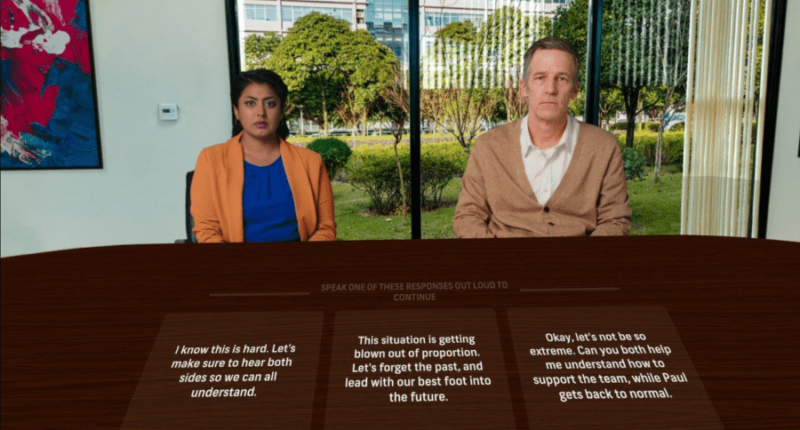Moth+Flame has partnered with The Society for Human Resource Management (SHRM) to offer immersive training sessions. The company will leverage its legacy in immersive training technology and transfer some of the SHRM’s traditional training sessions to more engaging and immersive ones. In one program, the immersive learning experience will help a manager build empathetic listening techniques via practicing the application of “Me+We+WO+RK” framework during natural conversations. According to the company, these training sessions will feature photorealistic characters in natural workplace and allow users to use their voices to navigate through complex workplace scenarios in safe environments to build skills and confidence.
Moth+Flame was founded in 2015 and initially focused on developing virtual reality experiences in the entertainment industry. In 2018, they shifted their focus to advanced training solutions. The company now has four main products, including Perform (learning management system), Ready (hard skills training), Promise (soft skills training), and Bridge (remote immersive collaboration).
Utilizing VR in soft skills or hard skill training is not new, and traditional methods lead to poor learning experiences. For example, VR has been reported to train leadership skills, communication skills, critical thinking skills, etc. Usually, the domain experts will identify core skills that they expect the learners to grasp during the training and then integrate them into branching dialogue trees, in which players make decisions based on prescribed choices and are then directed through dialogue trees. Though such dialogue trees provide interactions to players and allow them to see how their decisions influence the outcomes, the drawbacks are obvious. The options are quite limited and static, and it is impossible to simulate the real world that is complex and endless changing.
The Ready VR and Promise VR adopt artificial intelligence (AI) and natural language processing to make the interactions and measurements more natural. To be more specific, in the projects, the AI can capture and identify the learners’ communication styles and then interpret and measure their empathetic behaviors. Though there is no doubt that current AI and natural language processing are still far from intelligent, it is expected that when they achieve a technological maturity state, the immersive VR learning experience will be hugely augmented and enhanced.






Comments are closed.